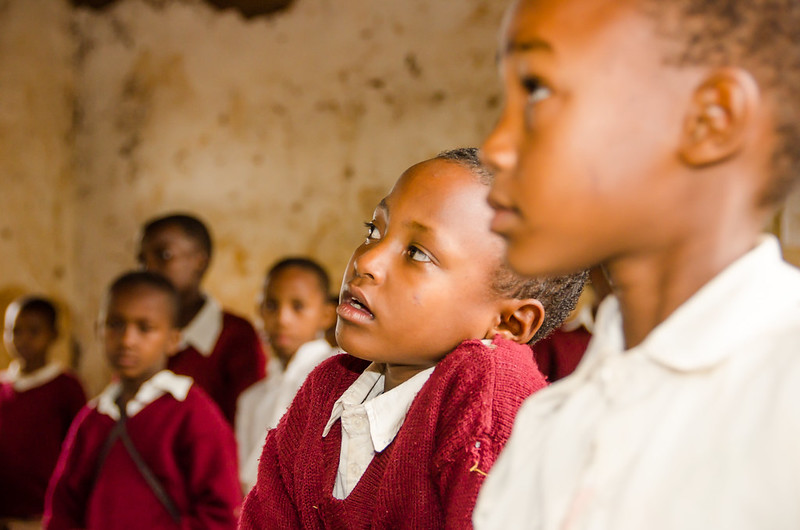Deaf People in Tanzania: From Exclusion to Opportunity
 In Tanzania, living with a disability is often connected with marginalization and poverty. Among the most affected are members of the deaf community. Individuals face deeply entrenched barriers to education, employment and financial inclusion. For many years, systemic challenges have caused widespread social exclusion and a lack of economic agency. However, a quiet revolution is unfolding. Across the country, deaf people in Tanzania are increasingly turning to small business ownership. With vocational abilities, support from NGOs and gradually improving public policy, they are building businesses that uplift not only themselves but also their communities. These stories reflect more than personal triumph; they signal a shift in how inclusive development can be achieved in low- and middle-income countries.
In Tanzania, living with a disability is often connected with marginalization and poverty. Among the most affected are members of the deaf community. Individuals face deeply entrenched barriers to education, employment and financial inclusion. For many years, systemic challenges have caused widespread social exclusion and a lack of economic agency. However, a quiet revolution is unfolding. Across the country, deaf people in Tanzania are increasingly turning to small business ownership. With vocational abilities, support from NGOs and gradually improving public policy, they are building businesses that uplift not only themselves but also their communities. These stories reflect more than personal triumph; they signal a shift in how inclusive development can be achieved in low- and middle-income countries.
Understanding the Context
Tanzania has more than 500,000 deaf and hard-of-hearing individuals, yet many face major barriers to education. According to government data, more than half of this population cannot read or write in English or Swahili. The Convention on the Rights of Persons with Disabilities (CRPD) says people with disabilities should have equal access to education. This poses a challenge, as Tanzania lacks enough trained teachers who know sign language. Most deaf students drop out before secondary school because classrooms are not adapted to their needs. This prevents them from gaining the basic skills needed for future jobs and independence.
The CRPD also protects the right of people with disabilities to work and earn a living. In Tanzania, many deaf individuals could be left out of the job market because they did not receive a proper education. Without training or support, they could often rely on family or informal work to survive. Social stigma and a lack of workplace accommodations could make it harder to find stable jobs. This exclusion could not only affect individuals but also hold back the country’s economy by leaving a large group of people underemployed and unable to contribute fully to national development.
Entrepreneurship as a Path to Empowerment
Entrepreneurship is becoming a valuable path to employment for deaf individuals in Tanzania, offering a way to overcome traditional job market barriers. FUWAVITA, a deaf women’s organization founded in 2018 with the support of Light for the World, empowers its members through economic skills training. Based in Dar es Salaam, the group teaches deaf women how to create and sell handmade products like soaps, batiks and beaded items. After completing the training, many participants launch small businesses that generate income and promote financial independence. This initiative not only creates sustainable livelihoods but also builds confidence and community leadership among deaf women and other deaf entrepreneurs in Tanzania overall.
Harnessing Technology for Inclusion
In Tanzania, the Federation of Disabled People’s Organizations (SHIVYWATA) is working to amplify the voices and rights of people with disabilities through advocacy and awareness. As a beneficiary of the Voice program, SHIVYAWATA promotes inclusive participation and campaigns for equal access to resources, including digital platforms, with a strong focus on reaching marginalized groups such as the deaf community. Its public engagement and visibility work had garnered recognition for fostering disability rights in innovative ways.
Meanwhile, DS International supports deaf people in Tanzania by working with local organizations that focus on advocacy, education, vocational training and more.
Building a More Inclusive Ecosystem
Tanzania has unveiled strategies regarding national disability and guidelines on disability-inclusive planning to ensure that individuals with disabilities are part of the national development. These initiatives aim to integrate disability inclusion across sectors such as education, employment, health and economic development. By addressing systemic barriers and promoting inclusive planning, the government is working to create an enabling environment where individuals with disabilities can participate equally in society. This approach reflects a commitment to equity and sustainable development in Tanzania and a more inclusive approach to society where deaf entrepreneurs can thrive and help strengthen their communities and the country as a whole.
A Model for Sustainable Development
Deaf people in Tanzania are breaking the cycle of poverty and changing how society views disability. They are proving that with the right support, people with disabilities can drive meaningful change. Tanzania combines grassroots programs, vocational training and national policies to empower these individuals.
As donors and development agencies search for effective poverty reduction strategies, Tanzania’s deaf people’s movement stands out. It shows that accessible economic systems benefit everyone- not just people with disabilities, but entire communities.
– Vasara Mikulevicius
Vasara is based in West Bloomfield, MI, USA and focuses on Good News and Global Health for The Borgen Project.
Photo: Flickr
